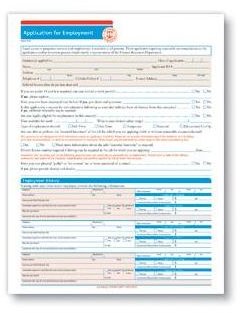Using Credit Checks Before Job Offers: Legal or Not?
Why Run a Credit Check?
Years ago, back in the late 1980s, I worked as the HR Director for a company that built and managed apartment complexes. The employee pool was vast and ranged from construction workers to maintenance people to leasing agents—not to mention the corporate office staff.
The owner of the company instituted credit checks, and job offers were not allowed until the supervisor and the HR department had a chance to review the candidate’s credit report. Why did this business owner feel credit checks were important? His reasoning was that if people were timely in paying debts, they would be more responsible on the job—sort of a character tool, if you will.
A credit report can say a lot about a candidate, but can you legally run a credit report?
Job Applicants and Credit Reports
If you’re an HR professional, you most likely already know you can run a credit check on a job applicant, if you follow some rules. In my business, we utilize a standard job application that is legal in every state from the HR Company G-Neil.
At the end of the job application, there’s wording the applicant is warned to read before signing. It states:
“I expressly authorize, without reservation, the employer, its representatives, employees or agents to contact and obtain information from all references (personal and professional), employers, public agencies, licensing authorities, education institutions and perform background or credit checks to otherwise verify the accuracy of all information provided by me in this application, resume or job interview.”
If the job candidate does indeed sign the application, the above clause does indeed allow the employer to run a credit check because the applicant was made aware that the possibility of a credit check is indeed probable. Further, if you only utilize resumes as a job screening tool and plan to run a credit check, it’s best to have a statement prepared that the applicant can sign informing him or her of a possible credit check. A job candidate’s permission is essential here.
Credit Checks & Legal Issues
According to a story on ABC News online, reporter Russell Goldman offered that “In 2004, some 35 percent of American companies were checking potential employee’s credit histories.” Since, 2004, that number has most likely risen as business owners and HR professionals want to review credit checks, and job offers for those who have a poor credit history may be looked at as risky to employ.
Still, there are some jobs that may require a good credit history in order to obtain the job such as those in the retail (cash handlers), credit card or banking business.
The legalities and rules behind credit checks, or denying a job due to a poor credit report, even if you have permission from the applicant, are important to follow to the letter to avoid a lawsuit.
For example, Title VII of the Civil Rights Act of 1964 from the Equal Employment Opportunity Commission (EEOC) clearly states if an employer decides not to hire a candidate based “solely or in part” on his or her credit report, they must provide a copy of the credit report to the applicant. Employers who deny a job applicant based on less than stellar credit report must also direct them to or offer up the rules under the Fair Credit Reporting Act. You can find a copy of the Fair Credit Reporting Act here; and it’s wise for employers and HR professionals to keep a copy on hand if jobs denied are based on a poor credit score or history.
Labor laws do vary from state to state and if you’re unsure whether you are allowed to run a credit report as a job pre-screening tool or if there are certain rules that apply in your state, contact a labor law attorney or your local Department of Labor and ask before you implement a credit check process to screen job candidates.
Please be sure to check out the other tips and strategies found in Bright Hub’s HR Guide for Recruiting and Retaining Employees.
References
EEOC – “Employment Tests & Selection Procedures” retrieved at: https://www.eeoc.gov/policy/docs/factemployment_procedures.html
Goldman, Russell, ABC News “When Your Credit Report Costs You a Job Offer” (2009) retrieved at https://abcnews.go.com/Business/story?id=7919922&page=1
Image Credits:
Screenshot of Job Application courtesy of G-Neil
